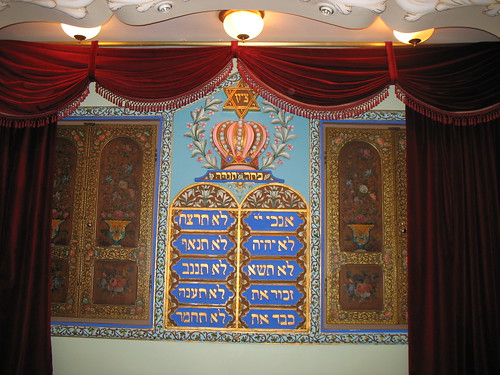
Although Iran and Israel are bitter enemies, few know that Iran is home to the largest number of Jews anywhere in the Middle East outside Israel.While Jewish communities in Syria, Iraq, Yemen, Egypt, Morocco and Algeria have all but vanished, Iran is home to 25,000 Jews and most are determined to remain no matter what the pressures - as proud of their Iranian culture as of their Jewish roots. Jews have lived in Persia for nearly 3,000 years - the descendants of slaves from Babylon saved by Cyrus the Great.
"Khomeini, recognised Jews as a religious minority that should be protected. As a result Jews have one representative in the Iranian parliament. Imam Khomeini made a distinction between Jews and Zionists and he supported us," says Jewish community leader Unees Hammami. Just as it radically transformed Muslim society, the Iranian revolution calso changed the Jews. Families that had been secular before, started keeping kosher and strictly observing rules against driving on Shabbat. They stopped going to restaurants, cafes and cinemas - many such establishments were closed down - and the synagogue perforce became the focal point of their social lives.
Jewish women, like Muslim women, are required by law to keep their heads covered, although most eschew the chador for a simple scarf. But Jews, unlike Muslims, can keep small flasks of home-brewed wine or arrack to drink within the privacy of their homes - in theory, for religious purposes. Some Hebrew schools are co-ed, and men and women dance with each other at weddings."Khomeini, recognised Jews as a religious minority that should be protected. As a result Jews have one representative in the Iranian parliament. Imam Khomeini made a distinction between Jews and Zionists and he supported us," says Jewish community leader Unees Hammami. Just as it radically transformed Muslim society, the Iranian revolution calso changed the Jews. Families that had been secular before, started keeping kosher and strictly observing rules against driving on Shabbat. They stopped going to restaurants, cafes and cinemas - many such establishments were closed down - and the synagogue perforce became the focal point of their social lives.







No comments:
Post a Comment